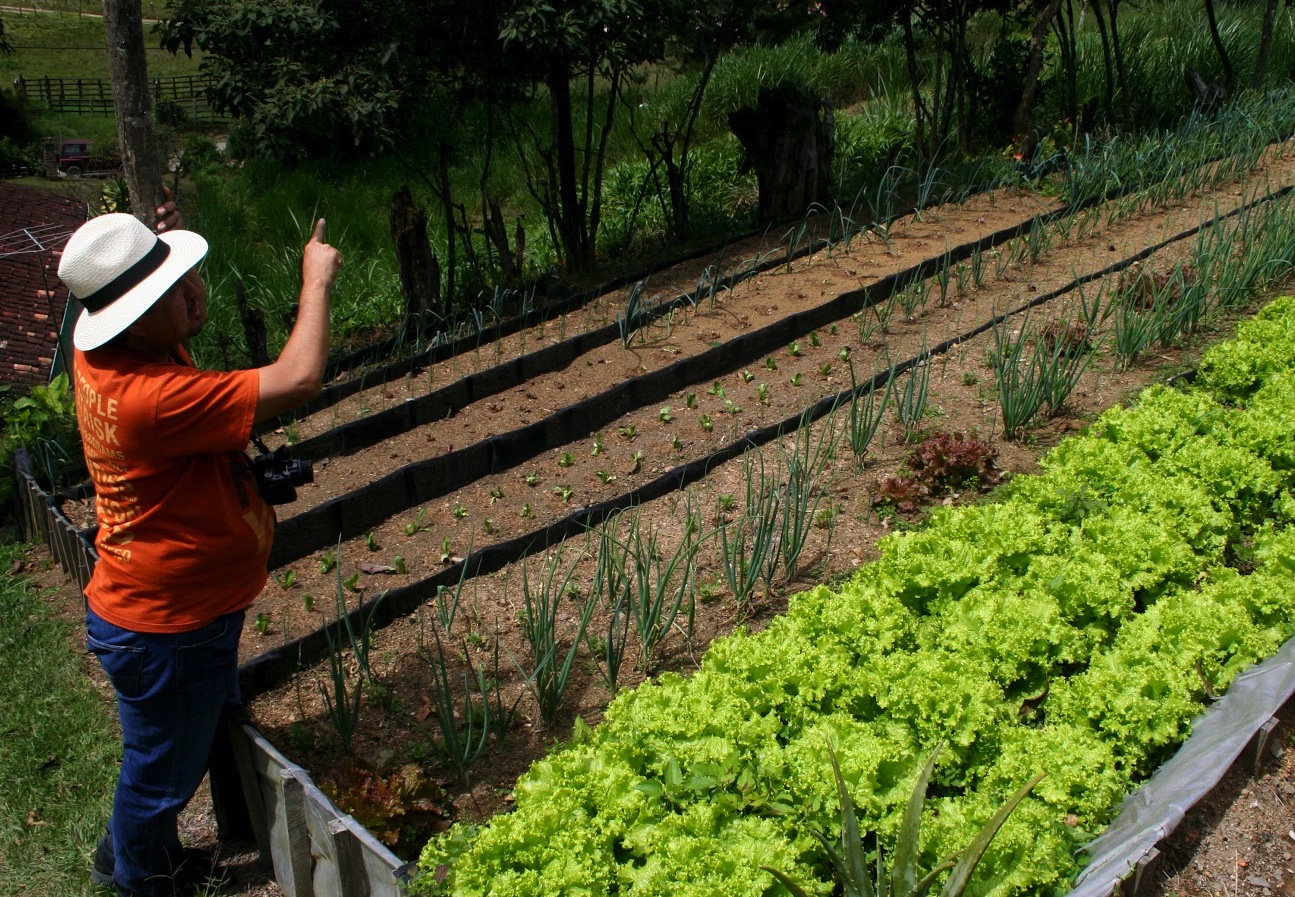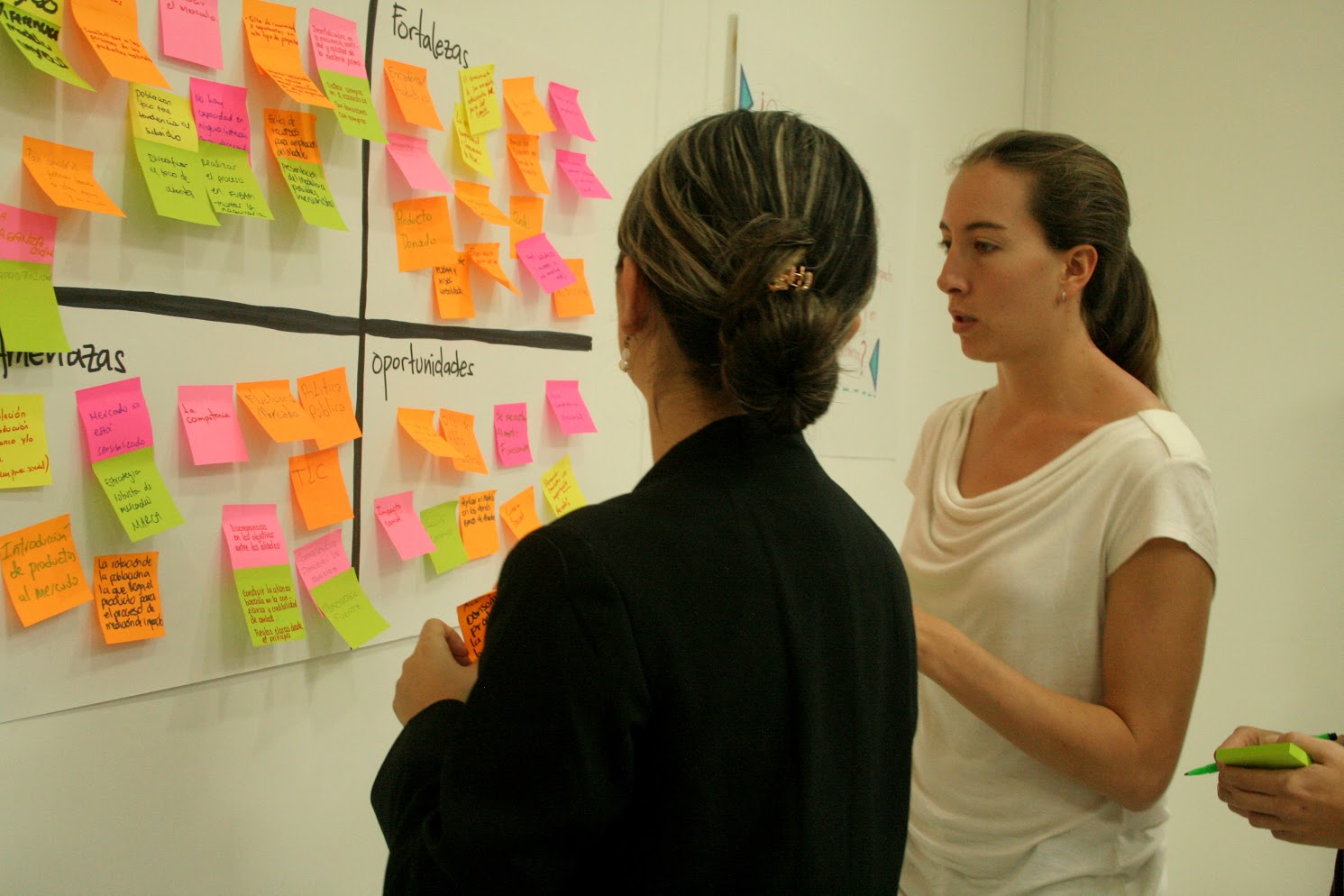Creating an Efficient Funnel for Inclusive Business: How agri-processors, farmers, food banks and the government are blending an alliance
Mauricio Vargas, founder and managing partner of ALSEC SA, is passionate about innovation. His company, which processes liquid food into powder, has developed its own spray dry and micro-encapsulated technologies, and is well positioned in the food ingredients market.
This Colombian company is interested in participating in what Vargas calls “business that makes sense,” those that transcend the generation of economic value, to also achieve positive impact on environmental protection and poverty reduction. Notwithstanding, for a company with fewer than 50 employees, participating in inclusive business might seem a Herculean task.
Traditionally, inclusive business has been associated with large “anchor” corporations – or those willing to take significant financial risks linking vulnerable populations in their value chain. With a solid track record of more than 10 years and annual sales of over $2.5 million USD, ALSEC does not fit the conventional profile of an anchor company. Nevertheless, their interest in creating greater social and environmental value while innovating and developing new markets led them to get interested on the opportunities identified in Minka-Dev (where the authors work) – an online market for inclusive business opportunities.
The Minka-Dev platform connects organizations operating in contexts of poverty and market inefficiencies with companies, technological centers, and other public and private strategic partners to jointly develop ecosystems that create greater value in the triple bottom line (social, environmental and financial). At Minka-Dev we help these partners meet the needs that arise in conducting inclusive business, involving everything from marketing trends to business development.
How is a company linked to an inclusive business?
ALSEC came to Minka-Dev interested in participating in “Buen Provecho,” a business opportunity aimed at converting the production peaks of small farmers into food products that are useable in the longer term.
This opportunity, activated with the support of ANSPE (National Agency for Overcoming Extreme Poverty in Colombia), seeks to reduce food waste among small farmers while increasing food security through the development of products with higher nutritional value and a longer shelf life. Thus, the opportunity stimulates innovation and business development in alignment with the goals of reducing poverty.
The first phase for the development of this business opportunity was to map out the need and the local organizations serving population that had this need. From there, a local ally was selected, with wide knowledge about the needs and conditions of the target population. In selecting this ally, Minka-Dev looked for an organization with the desire and capability to effectively support the inclusive business that would subsequently be structured.
To find this ally, we mapped and assessed organizations that operated with poor populations throughout Colombia, using an algorithm designed for the online platform. This algorithm takes into account the internal conditions of an organization and the context in which it operates. The assessment also considers market inefficiencies and the poor population’s interests. The analysis performed by the algorithm is supplemented by site visits and interviews with those organizations that show the greatest potential.
The most suitable ally for the “Buen Provecho” opportunity turned out to be the Archdiocesan Food Bank Foundation of Medellin (FUBAM), which in addition to their knowledge of impoverished populations and nutrition, has a strong ability to generate strategic alliances, an infrastructure conducive to the development of business, and other valuable assets for entrepreneurial initiatives. These assets include a wide supply chain that encompasses companies, food industries, food distribution centers, commercializing agents and cooperatives of small producers, along with community soup kitchens, foundations and government food programs.

The FUBAM director inspects a crop during a field visit as part of the co-creation proces. (Image courtesy of Minka-Dev).
Using the tools and methodologies in Minka-Dev’s marketplace, FUBAM worked with us to structure the business opportunity, utilizing their knowledge of nutrition and small farmers’ supply production peaks. To convert this information into a clear opportunity, Minka-Dev provided information on trends and market needs. Thus, we started with the need and deep knowledge FUBAM had, and turned it into a business opportunity that placed value on local assets, local organization, and market trends that responded to that need.
Once the business opportunity was launched through our on-line market, Minka-Dev disseminated it among enterprise networks inviting them to devise business solutions. By spreading the opportunity throughout the private sector, we aimed to spark business development that could create greater social-environmental value.
The proposal submitted by Vargas and his team was selected from 39 submitted solutions. The vision of ALSEC regarding FUBAM’s role in business development was a key factor in the assessment process, since for Minka-Dev it is very important that the company understands and values ??the participation of the social organization in the model, thus ensuring shared value and making the most of the knowledge and assets of both parties.
With ALSEC’s technology and know-how, the production peaks of small farmers who come to FUBAM could be harnessed. Using ALSEC’s Spray Dry and Microencapsulation technology, fruits and vegetables in a high state of maturation could become functional foods that preserve their nutritional value and have an extended shelf life. This could make the nutrients from fruits and vegetables available to vulnerable populations.
Co-creating the business model
Minka-Dev’s methodology is based on the concept of co-creation, so that the inclusive business model is the result of an open innovation process engaging the selected company (ALSEC), the organization that identified the opportunity (FUBAM), and various strategic alliances that increase the feasibility, sustainability, and potential scaling of inclusive business.
The resulting business involves the production of functional fruit-based foods, aimed at vulnerable population (pregnant women, infants, children and the elderly), which are channeled through public procurement and nutritional programs, where raw materials mainly come from the production peaks of small farmers.

First results
For ALSEC, this business has opened the possibility of developing a new market, innovating new products, and creating greater social-environmental value through its own business actions. Meanwhile, FUBAM has expanded the impact and sustainability of its activities, in addition to strengthening innovation processes. The link between the social and the business sector has expanded the perspectives of both allies.
(Left: Working through the co-creation process. Image courtesy of Minka-Dev).
The first product that resulted from this alliance was an orange-based powdered food that the Mayor’s Office of Medellin (Colombia) will include in its programs for gestating women, children and adolescents with food vulnerability. This product and others that are being developed to meet the nutritional needs of these vulnerable populations will be channeled through various nutrition programs.
Like ALSEC and FUBAM, many organizations from the industrial sector, and others that operate in contexts of poverty and market inefficiencies, are in search of suitable scenarios for business development that generate greater social and environmental value. Minka-Dev encourages those spaces through methodologies to reduce risks, co-create the models, and strengthen public-private partnerships to increase the feasibility and potential scaling of the business that are generated.
Juliana Mutis is General Director of Minka-Dev, a platform that connects the needs and aspirations of society’s most disadvantaged groups with innovative, inclusive and sustainable business solutions.
Marcela Arango is Community Manager of Minka-Dev.
- Categories
- Agriculture
